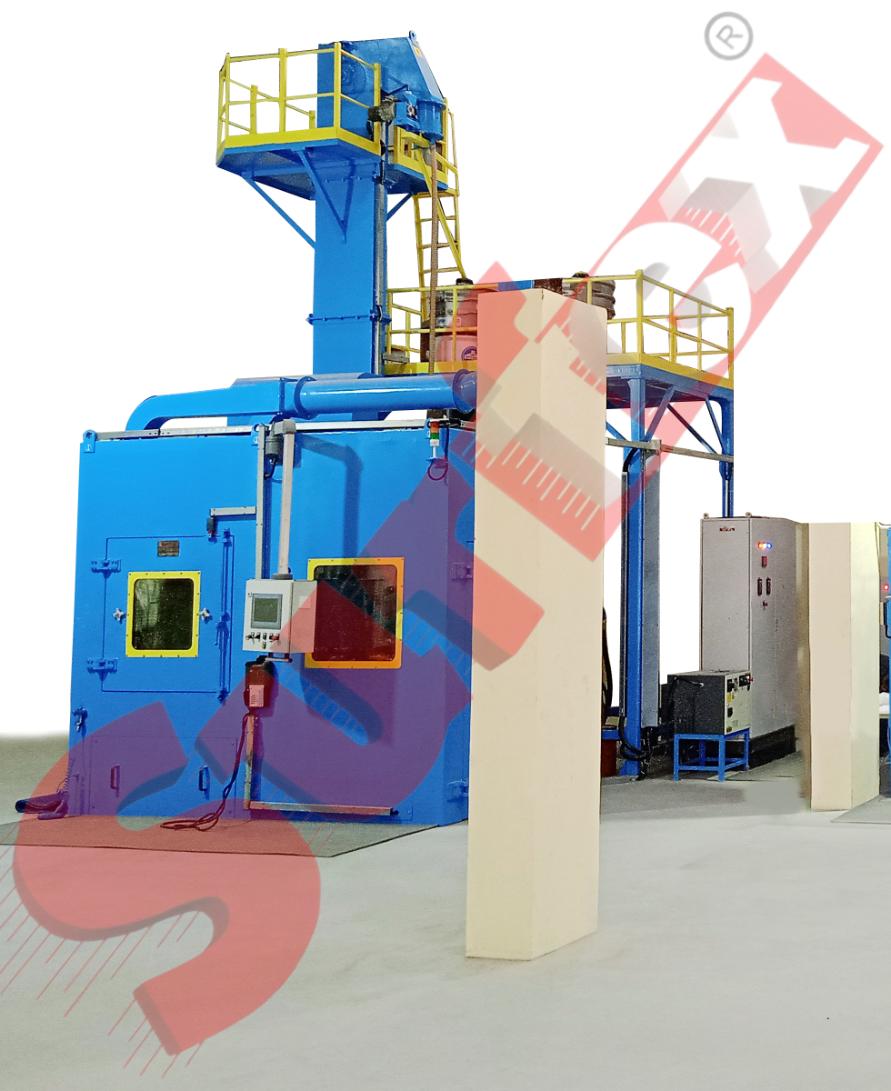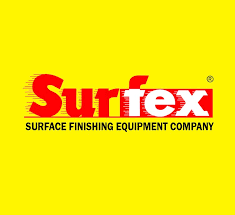Maintaining a shot blasting machine is essential for extending its lifespan and ensuring it operates at peak efficiency. Shot blasting machines are valuable investments for many industries, including metalworking, construction, and manufacturing. To get the most out of your equipment, consistent and proper maintenance practices must be followed. This article offers comprehensive maintenance tips that will help prolong the life of your shot blasting machine, reduce downtime, and improve overall performance. Shot Blasting Machine, Shot Blasting Machine Manufacturers, Shot Blasting Machine Price, shot peening machine, Robotic Shot Peening Machine , Automatic Shot Blasting Machine, shot blasting machine manufacturers in india , shot peening machine manufacturers in india, shot blasting machine manufacturers in jodhpur, shot peening machine manufacturers, Shot blasting machine manufacturer, shot blasting machine manufacturers in asia, shot blasting machine manufacturer in asia
Regular Inspection and Cleaning
One of the most fundamental maintenance practices is conducting regular inspections and thorough cleaning. During operation, shot blasting machines accumulate dust, abrasive material, and other debris, which can impair performance if not cleared. A few steps to consider include:
Daily Cleaning: Remove dust and leftover abrasive material from the machine after each use to prevent clogging and abrasion buildup.
Component Checks: Inspect parts such as the blast wheel, nozzles, and hoses for signs of wear and tear. Catching wear early can prevent larger failures down the line.
Safety Precautions: Ensure the machine is turned off and disconnected from the power source before cleaning or inspecting any parts.
Monitor the Abrasive Quality
The type and condition of the abrasive material you use directly impact your machine’s performance and longevity. To maintain optimal efficiency:
Use Quality Abrasives: Poor-quality abrasives can degrade quickly, creating excessive dust and wearing out machine parts faster.
Sieve the Abrasive Regularly: Sifting through abrasives helps remove foreign particles and broken-down media that could cause blockages or uneven blasting.
Replace Worn-Out Media: Once abrasives have degraded past their effective state, replace them to maintain consistent blasting quality.
Lubrication of Moving Parts
Proper lubrication is crucial to avoid friction and overheating in moving components. Follow these guidelines for effective lubrication:
Schedule Lubrication: Regularly lubricate bearings, motors, and other moving parts according to the manufacturer’s instructions.
Use Correct Lubricants: Ensure that the lubricant used is compatible with the specific parts and temperature conditions of your machine.
Monitor for Leaks: Check for any signs of leaking oil or grease, as this could indicate problems with seals or gaskets that need repair.
Blast Wheel and Blade Maintenance
The blast wheel is the core of any shot blasting machine, responsible for propelling the abrasive material. To keep it in top condition:
Inspect Blades Frequently: The blades of the blast wheel experience significant wear over time. Regular inspection allows you to identify damage early and replace worn blades before they affect the machine’s performance.
Check Balance: An imbalanced blast wheel can cause vibrations, leading to further damage to the machine. Ensure the wheel is balanced during maintenance.
Tighten Bolts and Fasteners: Loose bolts can lead to misalignment and malfunctioning of the blast wheel. Tighten any loose fasteners as part of routine maintenance.
Monitor Wear Parts
Parts that come into regular contact with the abrasive material, such as liners, control cages, and nozzles, experience high wear rates. To ensure these parts remain functional:
Replace Liners When Needed: Liners protect the interior of the machine. Replacing worn liners can prevent more extensive damage to the body of the machine.
Inspect Control Cages: The control cage directs the flow of abrasive, so its condition is critical. A damaged or worn-out control cage can cause inefficient blasting and uneven wear.
Maintain Nozzles: Nozzles wear down over time, affecting the precision and effectiveness of the blasting process. Regularly checking and replacing nozzles helps maintain optimal performance.
Check Seals and Filters
Seals and filters play a vital role in preventing dust and contaminants from entering sensitive parts of the machine. To keep these components in good shape:
Replace Filters Periodically: Dust filters can become clogged over time, reducing airflow and causing the machine to overheat or lose efficiency. Follow a schedule for changing or cleaning filters.
Inspect Seals for Leaks: Any damage or wear in seals can allow dust and abrasives to escape or infiltrate critical machine areas, potentially causing damage.
Ensure Proper Fitting: Confirm that filters and seals are properly seated to maximize their effectiveness.
Routine Calibration
Maintaining the accuracy of your shot blasting machine requires periodic calibration. Calibration ensures that the machine operates at the intended parameters for pressure and abrasive flow.
Adjust Abrasive Flow Rate: Check and calibrate the flow rate to ensure it matches the manufacturer’s specifications.
Calibrate Pressure Settings: Incorrect pressure can lead to inefficient blasting and excessive wear on the machine.
Document Calibration Data: Keeping a record of calibration checks helps in tracking trends and identifying potential issues early.
Electrical System Maintenance
The electrical system is a critical aspect of any shot blasting machine. Neglecting it can lead to major operational problems. To keep the electrical components in check:
Inspect Wiring and Connections: Periodically examine wiring for signs of wear, fraying, or corrosion.
Check Circuit Breakers and Fuses: Ensure that circuit breakers and fuses are functioning properly to avoid power surges that could damage the machine.
Examine Motor Performance: Keep an eye on motor noise and performance. Any unusual sounds or overheating could signal motor issues that need immediate attention.
Employee Training and Best Practices
Even with the best maintenance practices, a poorly trained operator can inadvertently cause damage to the machine. Invest in regular training to ensure operators:
Understand the Machine’s Limits: Educating staff on proper usage prevents overloading and misuse.
Follow Safety Protocols: Ensuring that operators are trained in safety measures reduces the risk of accidents and machine damage.
Report Anomalies Promptly: Encourage operators to report any irregularities immediately to allow for quick intervention.
Develop a Maintenance Schedule
Consistency is key when it comes to maintaining a shot blasting machine. Developing and sticking to a comprehensive maintenance schedule helps prevent oversight. Here’s how to set up an effective schedule:
Daily Tasks: Include basic cleaning, visual inspections, and reporting issues.
Weekly Checks: Perform lubrication, abrasive quality assessment, and component tightening.
Monthly Maintenance: Include detailed inspections of high-wear parts, filter replacements, and calibration.
Annual Overhaul: Plan for a thorough check-up of the entire machine, replacing any parts that show significant wear.
Conclusion
Prolonging the life of your shot blasting machine requires a proactive and thorough approach to maintenance. Regular inspections, timely replacements, and consistent care of high-wear components will minimize downtime and maximize efficiency. By following these maintenance tips, you’ll not only extend the operational life of your equipment but also ensure better performance and cost-effectiveness over time. Proper training and adherence to a well-structured maintenance schedule are the cornerstones of maintaining your investment and ensuring long-term reliability.





Write a comment ...